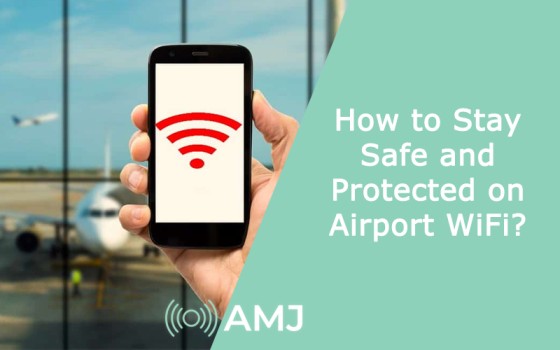Airport WiFi is used by thousands of people on a daily basis to access the internet and perform various tasks like web browsing, checking email, checking social media, etc. But when it comes to the security of the network, Airport WiFi networks are not inherently safe or secure. Airport WiFi networks are no different than any other public WiFi network, meaning that these networks are not as secure as your primary, password-protected home network and should be used with caution.
While most airports around the world provide free WiFi to passengers, one should use airport WiFi sparingly and with caution. Once you board the plane, you can easily access the on-board WiFi services provided by the airline, such as Singapore Airlines WiFi, but while you are waiting for your flight at an airport terminal, you should be cautious. Here is how you can stay safe and secure on Airport WiFI.
Contents
Double-Check the Network
The first major risk associated with airport WiFI is connecting to the wrong network. Therefore, the first thing that you should do is double-check that you join the airport’s official WiFi network. Most airports openly advertise the official network name prominently throughout boarding areas so that passengers join the right network only.
If you are planning to use airport WiFi, make sure that you closely compare the network name with the one advertised on the posters by the airport administration. By connecting to the right network, you will avoid falling victim to the evil twin attack, where users unknowingly join a fraudulent network and get their data compromised.
Use an Anti-Malware Software
Using anti-malware software is necessary to keep your device safe and protected. Whether you are using a laptop or smartphone, you should make sure that you are using quality anti malware or antivirus software on your device that can keep you protected. Although there are fewer concerns about malware on smartphones and tablets, this doesn’t mean that you shouldn’t protect yourself.
Use a VPN
Most people perceive a VPN as a tool that can enable them to access geo-restricted and blocked websites, but it is much more than that. A VPN or Virtual Private Network encrypts your network so that you can connect the network anonymously and no one can intercept the data that you are sending across the network. For people who want to use Airport WiFi or onboard WiFi like Cathay Pacific WiFi, a VPN can be their best friend.
Using a VPN is one of the best ways to ensure your security when you are on a public WiFi network, be it at the airport or elsewhere. A VPN has become the best way to protect your data privacy and keep your network encrypted, as it keeps you protected against all kinds of online threats.
Use Mobile Data for Sending Personal Information
If you ever have to perform an online activity that involves sharing personal or sensitive information like banking or making transactions, ensure you stay away from public WiFi networks for such purposes. Many security experts suggest that whenever you have to perform an activity that involves sending personal or sensitive information, you should disconnect from public WiFI and use your mobile data for that purpose instead.
By doing so, you can make sure that your personal and private information remains secure. If you were to send any personal information through a public WiFi network, you would be putting that information at risk and it is better to avoid doing so altogether.
Disable File Sharing
Lastly, don’t forget the file-sharing option. Many people have the file sharing option enabled all the time, as they are used to sharing files through trusted networks at home, but while using an airport WiFi or any other public WiFi, this option should be disabled so that no one can snoop on your device through the WiFi network.












![Index of Money Heist [Season 1, 2, 3 & 4 – All Episodes, Cast and Plot] Index of Money Heist](https://www.asiamediajournal.com/wp-content/uploads/2021/05/Index-of-Money-Heist-3-100x70.jpg)